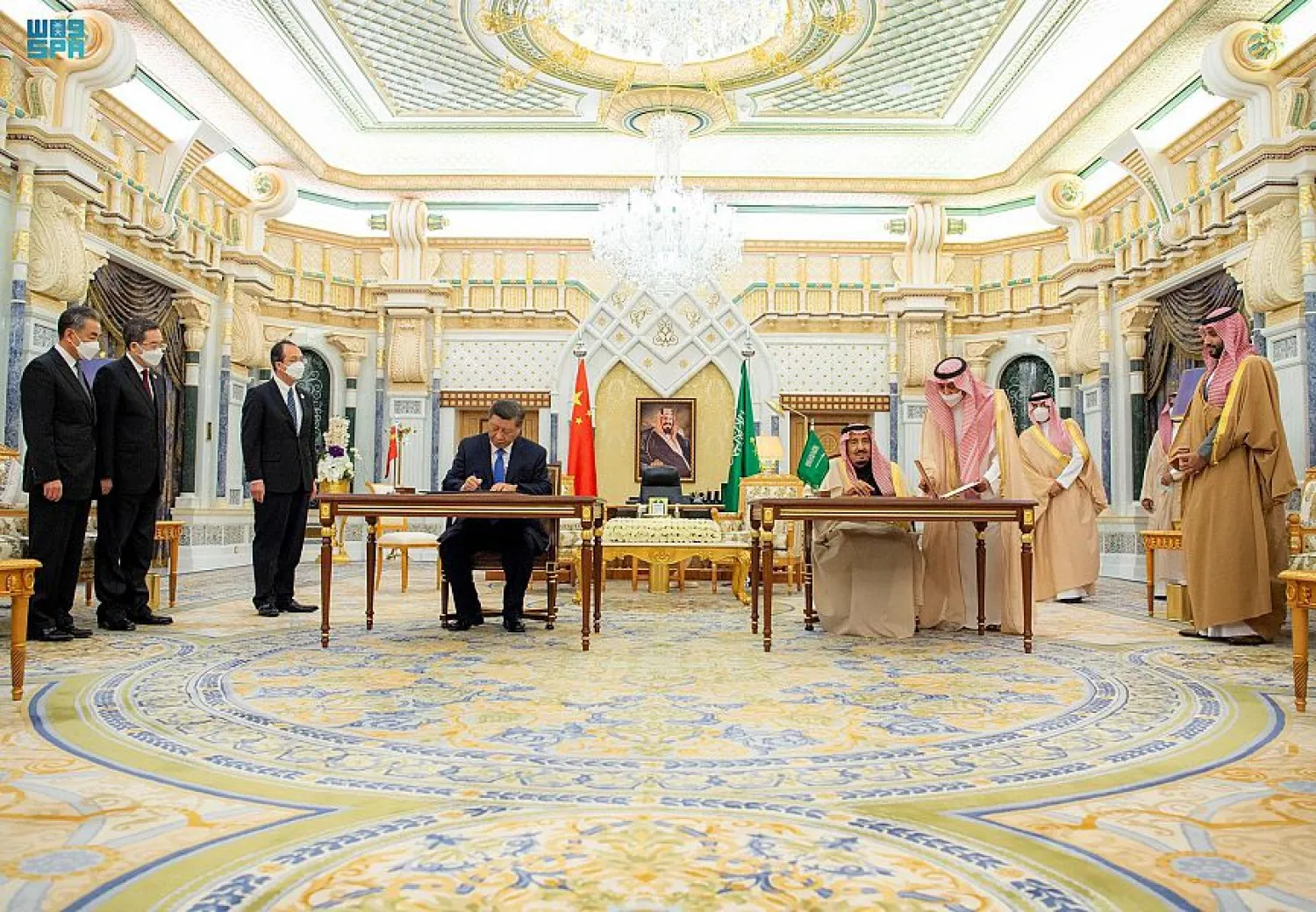Saudi Arabia and China reaffirmed the significance of stability in global oil markets and the Saudi role in that, a joint statement said on Friday, following Chinese President Xi Jinping's visit to the Kingdom.
"The People's Republic of China welcomed the Kingdom’s role as a supporter of the balance and stability in the world oil markets, and as reliable major exporter of crude oil to China," the statement said.
The statement was issued after the Custodian of the Two Holy Mosques, King Salman bin Abdulaziz, and Prince Mohammed bin Salman, Crown Prince and Prime Minister, met with Xi on Thursday.
The leaders “indicated that the development and consolidation of cooperation in the field of oil is in conformity with the common interests of both sides,” said the statement.
“The two sides agreed to explore the common investment opportunities in the petrochemicals sector, develop promising projects in petrochemical conversion techniques, and enhance joint cooperation in a number of fields and projects including electricity, PV energy, wind energy, and other sources of renewable energy.”
Saudi Arabia and China “also agreed to develop related projects, innovative uses of hydrocarbon resources, energy efficiency, localization of energy sector components and its supply chains, in addition to cooperating in the peaceful use of nuclear energy and the development of modern technologies such as artificial intelligence, as well as innovation in the energy sector.”









